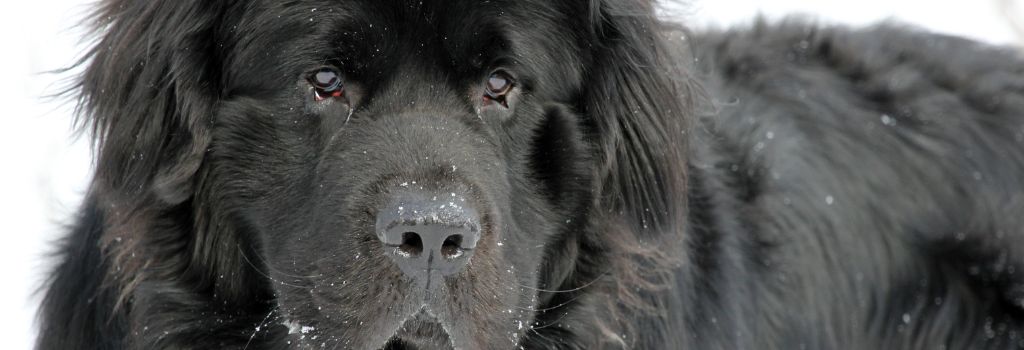A dog breed that’s as big on love as it is in size—the incredible Newfoundland, or the "Newfie" as they’re affectionately called. These fur-buddies are essentially gentle giants who can fill up a room, not just with their size but with their boundless love and affection.
Why Choose a Newfie?
If you're after a buddy who is like a big teddy bear—kind-hearted, easygoing, and affectionate—then the Newfie is your pick. These big dogs are incredibly intelligent, making them both reliable and quick to learn.
Newfies are people-pleasers, literally! They thrive on human interaction and are especially good with kids and other pets. With their brave disposition, they're always up for an adventure, making them versatile as companions, family dogs, or working dogs.

But Remember, No Dog is Flawless
As with any breed, Newfies come with their quirks. Due to their social nature, they crave attention from their family and may exhibit separation anxiety if left alone for long periods. While they're mostly calm, their puppy days can be quite lively and, well, rowdy.
Another thing to note—Newfies are big, really big. They take up space. So, if you're cramped for room, prepare for a tight squeeze. Their double coats and size mean they can struggle in hot weather, so summertime care is a must. And let's not gloss over it: Newfies do have a tendency to be gassy, shed, and drool.
Heartwarming Traits That Make It All Worthwhile
Despite the minor inconveniences, having a Newfie is an absolute joy! They are obedient, social, and full of character. Their innate swimming abilities and lifesaving instincts make them remarkable working dogs. When they’re not saving the day, they’re the perfect cuddle buddies and family pets.
From the Canadian Shores to Your Home
The Newfie originated in Canada, specifically bred to assist fishermen in various tasks like hauling wood and pulling nets. Thanks to their water-resistant coats, webbed feet, and unparalleled strength, these fur heroes are naturals at water rescue. Their calm, loyal, and courageous demeanor makes them ideal working dogs, earning them the endearing nickname, "nanny dog," for their renowned love of children.
So, if you're looking for a dog that’s as adept at lifesaving as it is at filling your life with love, a Newfie might just be the perfect companion. Just ensure you're prepared for a big, drooly, lovable hunk of happiness. Cheers to the Newfie, the gentle giant that wins hearts effortlessly!

Genetic Predispositions for Newfoundlands
The Scary Reality of Bloat in Newfoundlands
Gastric Dilatation and Volvulus, commonly known as GDV or bloat, is a serious condition you definitely want to keep on your radar. Especially since our beloved Newfs, with their deep and narrow chests, are more susceptible. Imagine your dog's stomach twisting and filling up with gas—yes, it's as painful and dangerous as it sounds. In some cases, untreated GDV can be fatal in just 30 minutes. Signs to look out for include retching without anything coming out, restlessness, a visibly swollen belly, or assuming a "prayer" position. If you notice any of these symptoms, don't wait—rush to an emergency vet right away. Preventive surgery is also an option to discuss with your vet.
Navigating Bone and Joint Issues in Newfoundlands
If your Newfie is acting a bit stiff or showing signs of discomfort, it might not just be an off day. Newfoundlands are prone to a variety of musculoskeletal issues like osteochondritis dissecans (OCD), cruciate ligament tears, and even hip and elbow dysplasia. For puppies, rapid growth can result in OCD, leading to surgery in some cases. It's crucial to monitor their diet and growth rate to keep them on the right track. Older Newfies may develop arthritis, making early diagnosis and treatment vital for their comfort. Weight management and a high-quality diet can go a long way in prevention. Always consult your vet for the best treatment plans and consider X-rays for early diagnosis.
The Eyes Have It: Navigating Eye Problems in Newfoundlands
One of the biggest joys for our Newfoundlands is watching them explore the world with wide-eyed wonder. But, like us, our Newfs are vulnerable to various eye problems that can have a big impact on their quality of life. From routine physical exams to annual screenings, it's crucial to keep an eye out (pun intended!) for any signs of trouble. Here's what you need to know about some common eye issues affecting this wonderful breed.
A Pressing Issue: Glaucoma in Newfoundlands
It's not just humans who suffer from glaucoma; our Newfs are at risk too. This eye condition is no walk in the park. It's incredibly painful and can lead to rapid blindness if left untreated. Symptoms include squinting, watery eyes, a blue tint to the cornea, and redness. Although we might not always notice it, our fur babies are often in severe pain. Picture being stabbed in the eye with an ice pick—yup, it's that excruciating. Glaucoma can even cause the eye to appear swollen or enlarged in advanced stages. Annual glaucoma screenings can be a real lifesaver, so mark your calendar! And remember, if you notice these symptoms, seek emergency care immediately. Time is of the essence!

The Foggy Window: Cataracts in Older Newfoundlands
As our Newfs enter their golden years, cataracts can become a concern. You'll notice that the lenses of their eyes turn cloudy rather than staying clear. While this can lead to blindness, the silver lining is that many dogs adjust well to reduced vision. Surgery is also an option to restore sight, so don't lose hope if your Newfie's eyes start to fog up.
When Lids Turn Inward: Entropion
Entropion is a peculiar condition where the eyelid rolls inward, causing the eyelashes to grate against the surface of the eyeball. As you can imagine, this is extremely painful and irritating for your furry friend, and it can lead to blindness if not addressed. While any dog can suffer from this condition, Newfoundlands are especially at risk due to their genetics. The good news is that surgical correction is often successful, particularly when performed early.
Listening to the Heartbeat: Heart Disease in Newfoundlands
Our furry companions are unfortunately more prone to heart diseases, which can show up either early in their life or in their golden years. When you take your Newf to the vet, listen closely as the vet checks for murmurs and abnormal heart rhythms. An annual heart health check-up may include X-rays, ECGs, or even an echocardiogram. But don't fret—early detection usually means effective treatment through medication, potentially extending your Newfie's life for years to come. Plus, keeping those teeth clean and maintaining a healthy weight can be your first line of defense.
The Big Heart Problem: Dilated Cardiomyopathy
Specifically, Newfoundlands have a heightened risk of developing dilated cardiomyopathy (DCM). Imagine the heart getting so big and weak that it struggles to pump blood—it's as dire as it sounds. If you notice your Newfie seeming lethargic or breathing unusually, it's time for an immediate vet visit. Annual screenings like ECGs or echocardiograms can be lifesavers—literally!
The Hidden Danger of Subaortic Stenosis
Subaortic Stenosis or SAS is another heart issue you should be aware of. It involves a narrowing below the aortic valve, which can lead to an overworked heart and sometimes, sudden death. Further testing like an echocardiogram will be essential if your vet hears a characteristic murmur during an examination.
A Closer Look at Cancer in Newfoundlands
As your Newf gets older, their risk of developing cancer increases. While it's a leading cause of death among older dogs, early detection is crucial for effective treatment. Whether it's surgery or chemotherapy, catching it early often means a better prognosis, so make sure you're diligent about those vet check-ups.
When Bones Tell a Story: Osteosarcoma
Osteosarcoma, a common bone tumor, is especially prevalent in larger breeds like Newfoundlands. If you see your dog limping or showing signs of leg pain, do not wait to consult your vet. This aggressive tumor requires swift action for the best chance at recovery.
A Stone's Throw: Bladder and Kidney Stones
Newfies are more likely to develop kidney or bladder stones compared to other breeds. Symptoms include bloody urine or difficulty urinating. If you notice any of these signs, it’s a medical emergency—contact your vet right away.
Navigating Neurological Issues
From seizures to imbalance and tremors, Newfoundlands can also suffer from various neurological problems. If your Newf shows any signs of neurological issues, immediate veterinary care is crucial for a correct diagnosis and appropriate treatment.

Scratching More Than Just an Itch: Allergies
Allergies can manifest differently in dogs, often affecting the skin rather than causing sneezing. You may notice your Newf frequently licking their paws or rubbing their face. Luckily, multiple treatment options are available to manage this common skin allergy, known as "atopy."
Skin Deep: Autoimmune Skin Disease
Pemphigus Foliaceus is a skin condition that tends to affect Newfoundlands, causing crusts and hair loss. While there’s no cure, effective treatments do exist. Just remember to use zinc-free sunscreen on sensitive areas, especially since sunlight can worsen the condition.
A Silent Issue: Laryngeal Paralysis
Especially in older Newfs, the vocal cords can become paralyzed, affecting their breathing. This is known as laryngeal paralysis.Look out for noisy breathing or collapse as signs. Immediate treatment is necessary to prevent this from turning into a surgical emergency.
Eating Troubles: Megaesophagus
Last but not least, let's talk about megesophagus, a condition where the esophagus becomes dilated, making it hard for your Newf to properly digest food. Look out for tube-shaped vomit as a symptom. Special feeding postures and dietary modifications can manage the condition, but prompt diagnosis is crucial to avoid complications like pneumonia.
Don't have a vet in your area yet? We can help you find a local veterinarian.
If you have more questions, the GeniusVets Telehealth platform will give you unlimited access to text and/or video calls with board-certified veterinarians! To learn more click here.


